I always felt like there was a veil of mystery over tattooing and the industry and the people who do tattoos, regardless of the proliferation of tattooing on reality TV. I got my first tattoo the day I turned 18, a few months before Miami Ink premiered, and had been obsessed with tattoo culture since I was a kid, so even when reality TV popularized the culture of tattooing, I knew that it wasn’t really telling the truth about what it was like, because I’d been into some dingy and mediocre shops by then; I knew tattoos weren’t cheap, I knew how long it took and how much pain it involved, and it’s nothing like TV tells you. Inasmuch as that was the case, I figured that my tattooers’ lives weren’t anything like Kat Von D’s, either.
So I went the next ten years wondering, but not really knowing, how tattooers get into their jobs or why, what an apprenticeship is like, what it’s like to tattoo someone. Until I became a patron at Tattoo Candy on Chicago’s northwest side, I didn’t understand why I had to wonder – it was because most of the tattooers I had ever gone to were pretty gruff, pretty intimidating, pretty unpleasant to talk to, and I had taken that as a matter of course for tattoo shops.
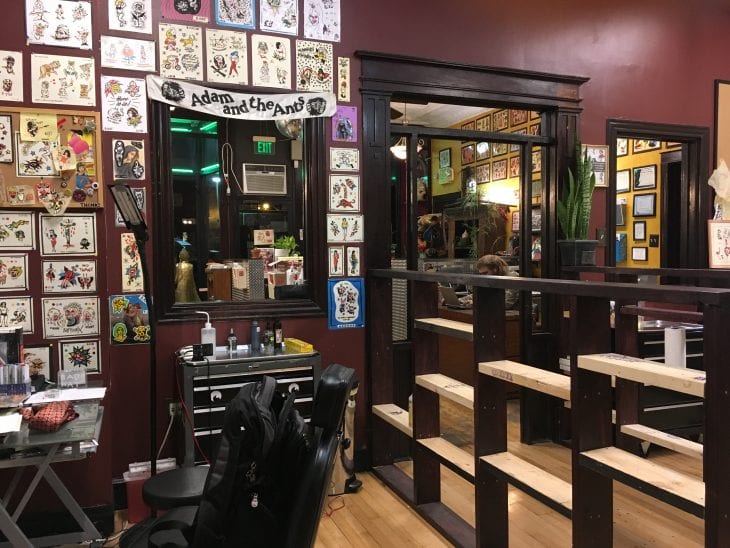
Source: tattoocandy.com
My friend Joe had turned me to Tattoo Candy last year, when I found out that the tattooer I’d been going to was blithely racist and then had a run-in with another tattooer who just couldn’t have given fewer fucks what I wanted out of my hand tattoos. Joe expressed almost exactly the same thing I felt when I started going to Tattoo Candy when I asked him why he started going. “A friend recommended it to me,” he said. “I had expressed frustration to them and others about the vibe of shops I’d been to in the past — something I couldn’t immediately put my finger on but what I realized later had to do with the ethos of a shop and the makeup of its staff, specifically whether it was the sort of place where females and queers felt not just tolerated but sort of part of the fabric. I’ve been to TC for three tattoos now, from two different artists, and really appreciate the fact that the shop has such a different vibe from any of the half-dozen other shops in this town I’ve been to. It feels truly welcoming, low-key and a little weird in a really good way. It’s awesome when you realize that something isn’t just the way it ‘has’ to be when it comes to tattoo shops.”
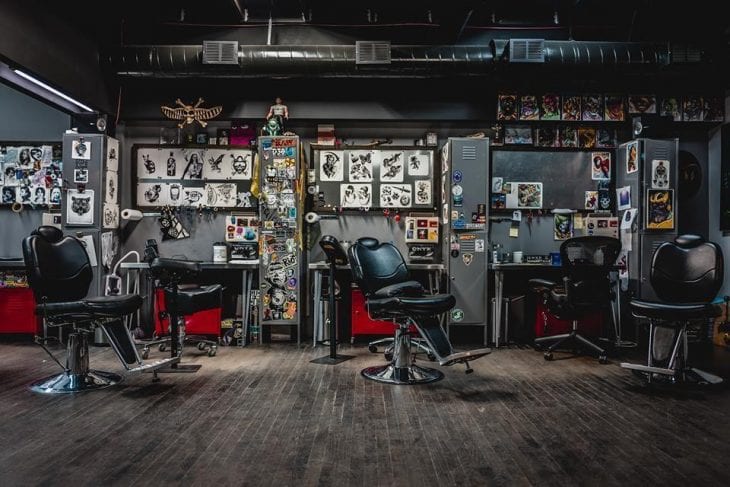
Source: do312.com
There is something sort of magical about Tattoo Candy. When I went there the first time, it was for a tattoo I was getting to celebrate finishing a marathon, of Han Solo’s blaster gun with a banner around it that reads, “Never tell me the odds.” I walked in, talked to a woman who was at the desk (which itself was an anomaly – there were two or three women in the front of the shop), and she said, “Hold on, let me get Jake. He’s our Star Wars guy.” I just about died. I know that seems like a kind of basic requirement, but I don’t know – after going to shop after shop, being greeted by gruff guys who swagger around like they’re doing you a favor by acknowledging your presence, with metal pumping through the speakers (every single time), it was cool to walk into a shop with various bizarre, occult-looking found objects on the shelves, a disco ball hanging over the doorway, indie alternative playing, and a staff that was as helpful and friendly as the kind of staff you’d imagine you’d find at a small-town mom-and-pop grocer. And they had a Star Wars guy, who not only appreciated how much the movies meant to me, but also, I found out while I was getting the tattoo done the following week, loved Spirited Away enough that he had worked up a really cool watercolor of No Face that he had hanging in his section, too. I mean, boss, guys. It was just boss. It felt like walking into my cool friend’s apartment where I was welcome to just hang and eat cookies or something, if “eat cookies” means “pay to get tattooed.” I’m pretty sure they actually would just tolerate me hanging out there if I felt like dropping by with some cupcakes or something, and I would like to.
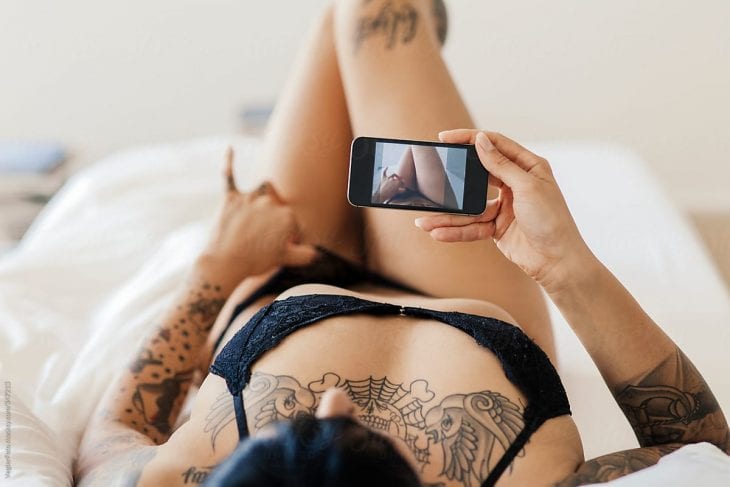
Source: stocksy.com
The most recent tattoo I got – well, am getting, in stages – was inspired by artwork from another artist at the shop, Speck Osterhout, that I saw while Jake was taking a break from my blaster gun last October. While he smoked, I wandered around the shop, and saw Speck’s section, which was filled with all sorts of hip-in-a-genuinely-hip-way and not to mention beautiful artwork of space cats and faceless people, and, what struck my interest more than anything, things with crystal formations growing out of them. And one in particular: A shark with crystals growing out of its back. Two years earlier, I’d gotten a tattoo of my ex-husband’s name covered up, and I’d vowed to myself that I’d never put another person’s name on my body again. And by that I meant I’d never get another person’s name put on my body again, so I got my own nickname – Rex – put on my shoulder, on a traditional heart-and-banner tattoo. I’d wanted to build around it and landed on wanting a phoenix spreading its wings around the heart, and tah-dah, here was the answer to my quandary: A crystal phoenix, original artwork by Speck Osterhout.
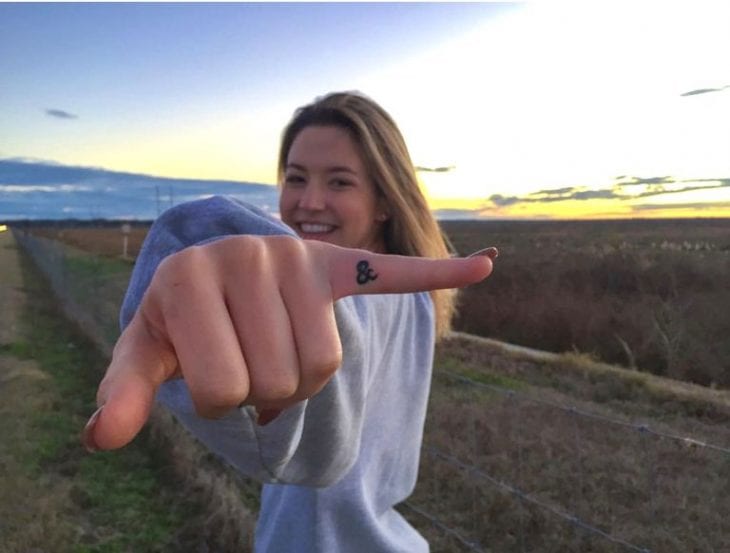
Source: cosmopolitan.com
Let me say how rare it is that I’ve actually been inspired by the artwork in a tattoo shop. I’m a picky, very visual person, and most of the artwork I’ve seen on the walls of parlors all looks the same. Not so at Tattoo Candy: One day, I will get Jake’s No Face; I will have Speck draw me up a faceless person; I will probably let her go crazy and give me whatever space cat she feels like drawing, too. Knowing that the onus isn’t just on me to get the artwork right – knowing that these are artists whose aesthetic styles I can count on, artists who I can work with and build a relationship with, with whom I can collaborate, is not only a relief, but it’s creatively expansive. I look forward to my future with them.
While I was getting the outlining and shading done on my crystal phoenix, I had a really good talk with Speck about tattooing, mainly inspired by my gushing appreciation for the shop, and Joe’s, too. (He said, “I can’t speak more highly about this place!” And honestly, me too.) And a thing happened with Speck that hasn’t happened before: She opened up to me about what her job is like, what her perspective is on tattooing. She cared that I knew. I’ve never had a relationship like that with a tattooer before, where I care that they know what the experience has been like on my end, and they care that I know what the experience has been like on theirs. It’s not exactly a friendship, but it seems like the kind of relationship you should have with someone who’s getting really close to your body and (consensually) inflicting pain on you for hours at a time.
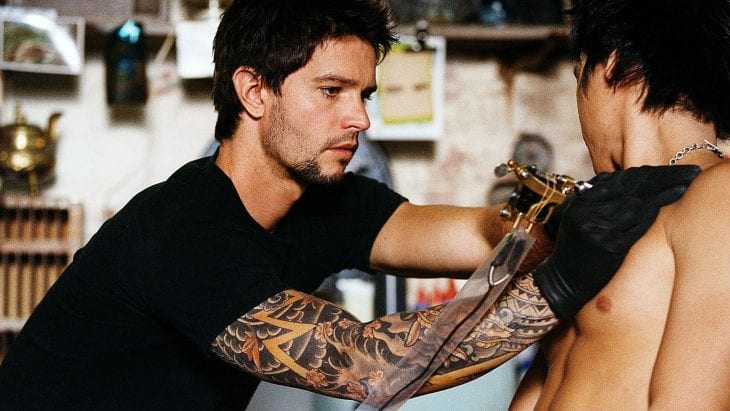
Source: bucketlist127.com
So I asked her if she would like to be interviewed for a profile on tattooing, and she gave me an enthusiastic yes (“Aw cool that would be awesome”). And, to my delight, the conversation turned into so much more. So much more, in fact, that I have to break the interview up into two parts: This first will be about how she got into tattooing, some of the technical aspects of the trade that I’ve always been curious about, and her thoughts about why people get into the field. The second part, which will be posted tomorrow, will be about Speck’s philosophy on tattooing, and her really and truly incredible, beautiful insights on why the experience of tattooing and getting tattooed is as meaningful as it is.
I took the bus out to Addison and Pulaski last Thursday and sat in her section – golden yellow walls, covered in her artwork, with a window pane lined with oddities like antique pharmaceutical bottles, a beetle encased in glass, a crystal ball with a purple skull inside, and a picture of Ron Swanson in a heart-shaped frame sitting next to a jar of candy. She opted to spend the time meticulously cleaning her section while we talked. And I started with the question everyone always starts with:
Contents
- The Frisky: How did you get into tattooing?
- Wait — were you getting them legally?
- How many shops have you worked at, at this point?
- Wait, wait, why does your old boss lie about it? To keep them coming to the shop?
- So the question that comes to mind, then, is – how badly do you need the business? How profitable is tattooing?
- Is it easier to market yourself now with Instagram?
- You have strong opinions about why people get into tattooing that we talked about the last time I was here…
The Frisky: How did you get into tattooing?
Speck Osterhout: I got my first tattoo when I was fifteen, and by the time I was seventeen, eighteen, I already had, like five tattoos or something, which was a big deal.
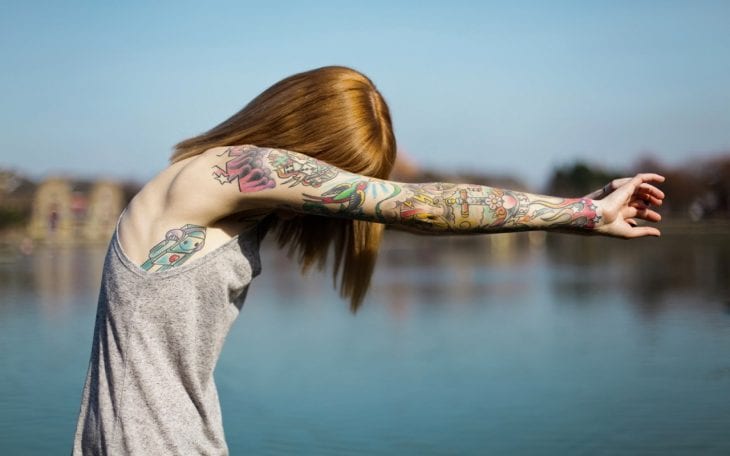
Source: nubimagazine.com
Wait — were you getting them legally?
I mean, my mom signed for the first one, and the guy who owned the shop was a big shithead, so he was like, “Ah, you know, she already signed for one, so you can go ahead and get tattoos whenever you want.”
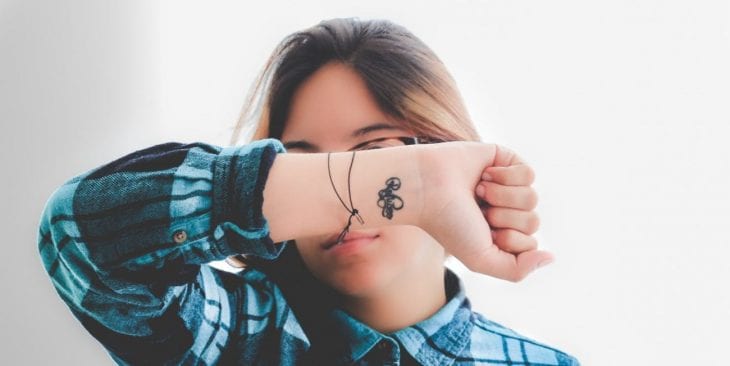
Source: inverse.com
So there was this guy that was new in my town. He had a bunch of tattoos and stuff, so I was like, “Ooh, weirdo! Awesome! It’s so cool.” But he started apprenticing at the shop where I got tattoos. So I used to stop by the shop anyway, before that kid started working there, so I just kind of, like, became his friend – and I don’t know if I made that happen, or if it just kind of happened because we weirdos and there weren’t any weirdos in my town. But I started hanging out with him at the shop, late at night, and one time we got drunk there and this other guy that was with us asked my friend if he could do a tattoo on himself. So he did, and it came out really shitty. So I was like “Yo, I wanna try and do it.” So I did; I did a tattoo on my leg – Taking Back Sunday lyrics – and it came out pretty good, I guess, because the dude who owned the place had me tattooing people the next day. Which, when I was eighteen, that was really cool, but now I think, Wow, that’s pretty shitty. So I didn’t really have a traditional apprenticeship, because I had to learn for myself. The guy I was working for sucked. He left me to run the shop after less than a year of me tattooing, and I didn’t know what the fuck I was doing.
And teaching yourself isn’t cool in tattooing. You have to know what you’re doing. I’ve been tattooing for twelve years now, but the first six years of that – I didn’t know what I was doing. I thought I did, because I thought I was super cool, but I didn’t.
How many shops have you worked at, at this point?
Six. And, like I said, the first couple years of my career, I didn’t know what I was doing, and for like a year of that, I was tattooing out of my house. That was another trashy way to start. I used all sterile stuff, but still, it doesn’t matter. You get tattooed at a house, it’s just not cool, unless it’s your friend who’s coming to visit and does your tattoo at your house.
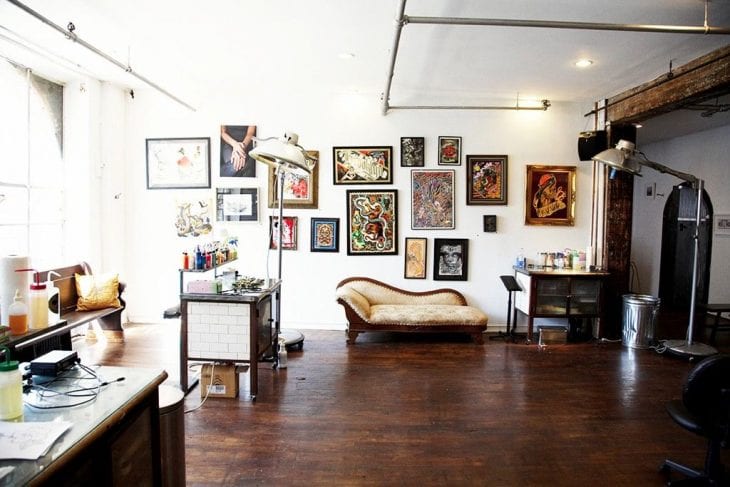
Source: pinterest.com
I worked at one shop in Connecticut, two shops in Indiana, and then three shops out here. I haven’t moved a lot because it kind of puts a strain on your clientele because people don’t know where you went, and your old boss lies about it.
Wait, wait, why does your old boss lie about it? To keep them coming to the shop?
Most of the time, if people leave shops, it’s either because you get fired or you find something better. No matter what you do, there’s always gonna be a little bit of bad blood when you leave a shop. So, like, the place I worked at before here, the guy told my clients that he fired me because I did heroin, and he also would tell people that I moved to California. It sounds really shady, but at the same time, if someone came in here and asked where someone who used to work here worked now, I’d be like, “Yo, I’m not gonna tell you, but I can help you, though.” It’s just business. Even if you loved somebody you worked with, you’re not gonna be like, “Oh yeah, please leave this shop. Please go leave and get tattooed somewhere else.” So I get it, but you don’t have to tell people that someone’s doing heroin.
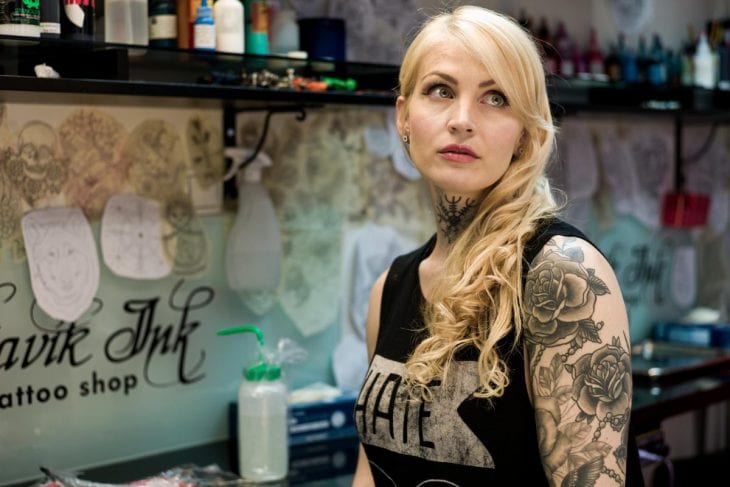
Source: icelandmag.is
So the question that comes to mind, then, is – how badly do you need the business? How profitable is tattooing?
Well, you know, a lot of people come in and you tell them the price of a tattoo and they’ll be like, “Ugh, that’s, like, so expensive.” But there a lot of things that factor in to getting a tattoo. So, first of all, you’re paying for the supplies. And they’re not that expensive, but everything we use gets thrown away. It doesn’t matter if you’re getting a full-body piece of Batman portraits or one dot on your shoulder – we don’t save inks that we fill up the caps with – it all gets chucked right out. That stuff is minimal cost for the tattoo, but it comes into consideration. Your initial set-up fee is, like, five bucks, honestly. But then you’re paying for the talent and the experience. If you’re getting tattooed by someone who’s been tattooing for thirty years, you should expect to pay more than for someone who’s been tattooing for two.
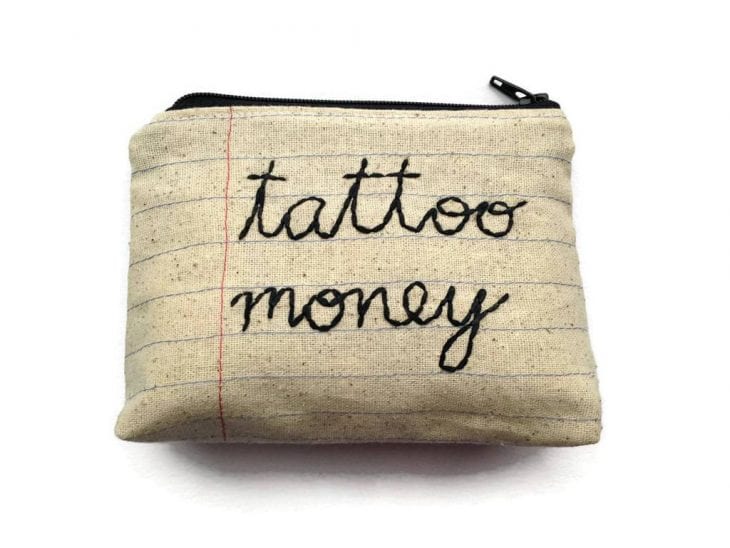
Source: montclairmade.com
Then you have your other costs with working – you have to get to work, you have to pay for your studio space, you have to keep the shop open, lights, you have to pay for paper and internet and all these things. So, we only make, like, 50 percent of what you get charged for a tattoo. That’s pretty traditional.
It sucks because most tattooers get paid in cash, so you can’t prove that you have income unless you’re doing it super-legit, which most of us don’t, because we live like rock stars. Well, OK, not like a rock star, but I definitely live like I’m nineteen still, because I haven’t had to act like I’m older. I don’t have to wear a certain kind of clothes and be in a cubicle, or tone down my attitude. I think part of the reason I started doing this job is so I could be a freakin’ weirdo my whole life and have it be a positive thing for my career. I can just be a weirdo my whole life cause I don’t wanna, like, change for a job.
So is it profitable or not? It totally is, but you’re the only one that can decide how profitable you want it to be. If you want to raise your prices, you have to get better. You have to choose your own path. Like, in January, I was having a really slow time. I was living day-to-day, and I was having a shitty time, but I realize now it’s because I wasn’t pushing myself. I was sitting down, not drawing, not doing anything, just saying, “Wow, January sucks.” And I wasn’t making any money because I was just sitting on my ass, complaining. At the end of January I was just like, “Fuck this, dude,” and I started drawing, and a bunch of people started coming in – you came in, and we did some awesome shit – it’s all about what you make it. You can’t be lazy in this industry. It reflects.
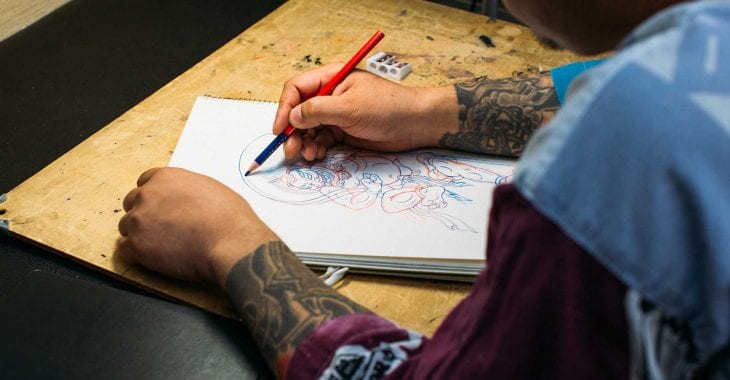
Source: tattooexperiences.com
Is it easier to market yourself now with Instagram?
Absolutely. It’s crazy. Instagram makes it so much easier. Especially the Instagram groups for tattoos – there’s a couple different groups for people dedicated to a certain style of tattooing – for like black workers, and dot workers, and flash workers – and a lot of the tattoos I do fall into those. So sometimes they’ll post you or mention you and that’s really cool, because people will see your work who won’t get to see it if it’s just your Facebook friend. And you can have contests on there.
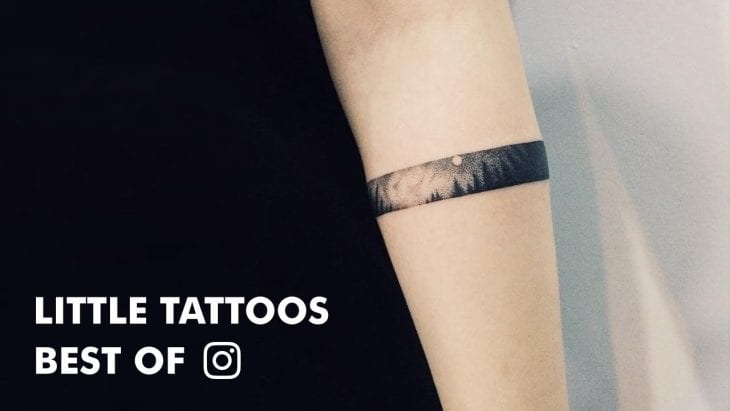
Source: .youtube.com
You have strong opinions about why people get into tattooing that we talked about the last time I was here…
I think there are a couple reasons. Mostly, it’s the art. Mostly, the normal, average tattooer sees tattoo art is truly inspired and moved by it, by the history and the craft, doing things with your hands, the machines and the technology and the health aspect of it. When people hear about that, they’re moved and they want to do it for the rest of their lives. And that’s really cool.
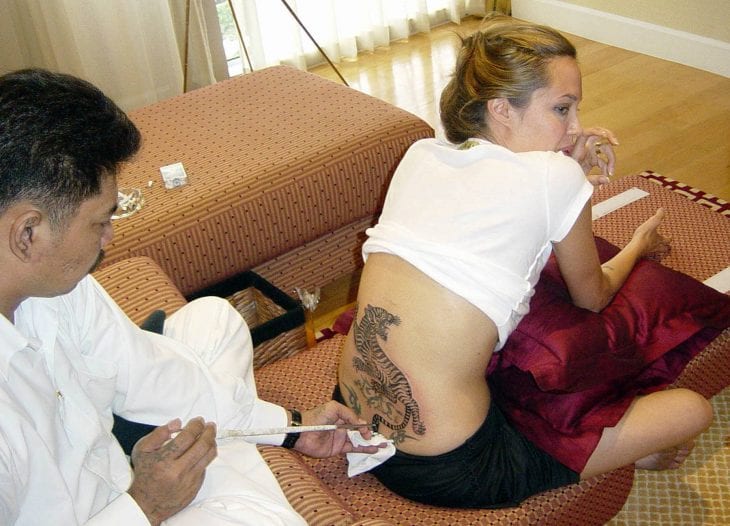
Source: angiesrainbow.com
But with some guys, they see it on TV and think, “Yeah, I’ll be totally badass if I did that. I could do that, no big deal.” So maybe they have the money to buy all the equipment, they have the money to go through an apprenticeship. But they may not have the knowledge to know who to get a proper apprenticeship from, so they apprentice under somebody shitty who doesn’t really know anything. And it’s the blind leading the blind. And they turn into these mediocre tattooers, who’ll be mediocre forever because they don’t want to get better, because why should they? They’re already the shit, man, because now they’re tattooers, and being the shit was the point. It’s basically just a way to get laid.
Then, I think, when it comes to women tattooers – there are like a bazillion of them now! And I love it. I love that there’s tons of girls in this industry because in ‘99, it was probably like 10 percent women. Maybe even less. But now there’s tons of them, and there’s amazing women tattooers like Emily Rose Murray, and tons of babes. But there are girls who also see it on TV, see the girl tattooers on TV, and it’s the same thing where they’re like, “Oh my god, I can draw, I can tattoo, no big deal!” They don’t know anything about it, they just go to a tattoo shop and they look fuckin’ crazy or awesome, whichever way you think about it. And it’s usually all dudes and they say they want to learn how to tattoo, and then they do, because guys wanna fuck them. They’ll be like, “Oh my god, this hot-ass chick just came in and wants to learn how to tattoo, I’m gonna take her under my wing,” and they’ll teach her how to tattoo, they’ll probably fuck a couple times, and then boom, she’s a tattooer. Every day these chicks put on the Girl Tattoo Artist costume with the piercings and the crazy makeup and the crazy eyebrows and the high heels and the retro pin-up clothes. I got in hot water on Tumblr for saying that, but that’s not what tattooing is about and it’s really tiring.
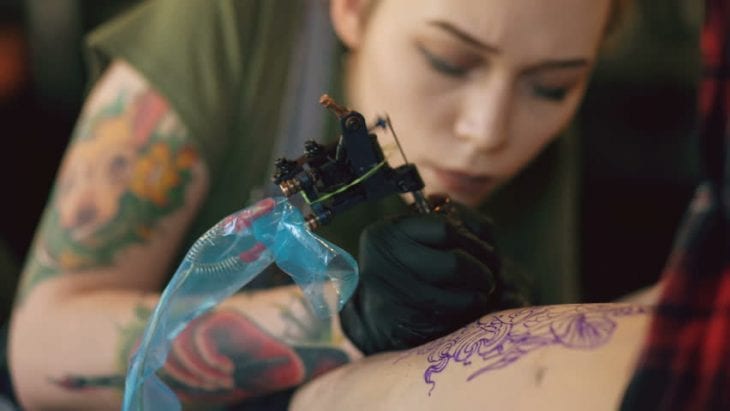
Source: apegeo.com
I think every girl tattooer is beautiful. Just the fact that they exist is beautiful. But it just shouldn’t be about what you look like. Your work speaks for you. Reality television has really skewed people’s view of what this job is. I mean, it’s dirty, it’s gross, it’s sweaty, it’s not that glamorous. There are girls out there who work every single day, really hard, and they don’t care about what they look like, they just care about what their tattoos look like. I’m not saying you should be a complete hag bag because you’re in this industry. But people see it as if it’s either really tough and macho and cool and badass, or really glamorous and you’re a party princess. If you’re really into this industry, you don’t get to go out that much, you don’t really go and party, you don’t have time to put on makeup because you’ve got to get to work and tattoo somebody and that shit does not matter once you’re in your section with somebody.
Original by Rebecca Vipond Brink
